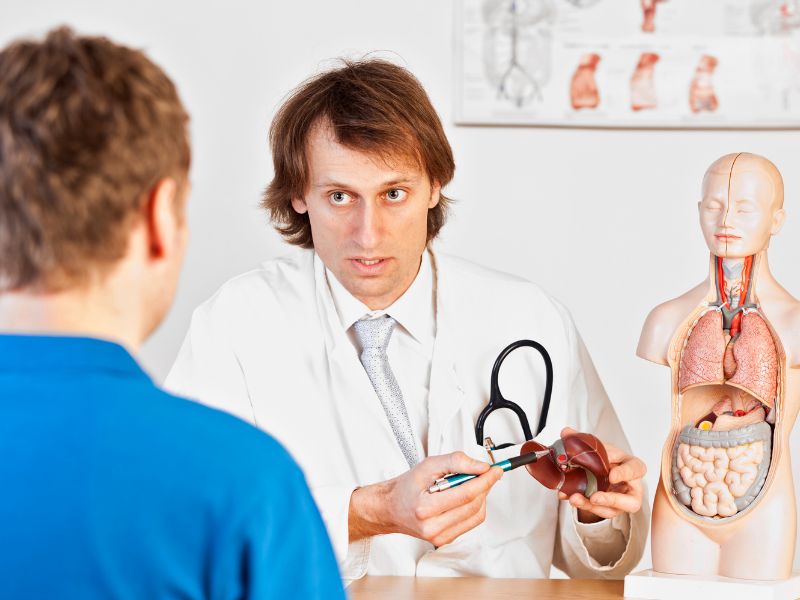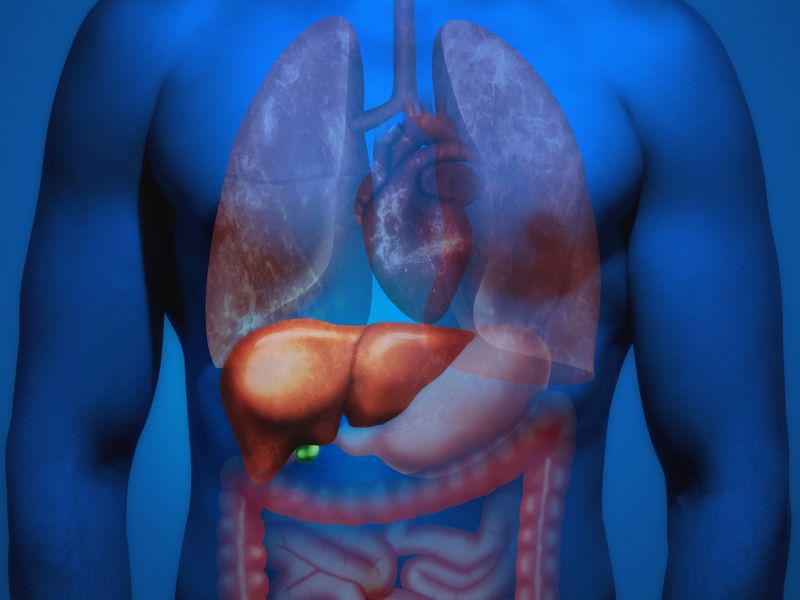The liver is vital for filtering toxins, producing enzymes, and aiding digestion. When it starts to hurt, it’s crucial to pay attention. This discomfort may indicate an underlying issue that requires prompt attention. This article aims to shed light on potential reasons why your liver might be hurting and what steps you can take.
Overindulgence In Alcohol
Excessive alcohol consumption can lead to liver inflammation, commonly known as alcoholic hepatitis. This condition can cause a dull ache or sharp pain in the upper right abdomen. It’s imperative to seek medical advice and consider reducing alcohol consumption.

Canva. com
Fatty Liver Disease
Non-alcoholic fatty liver disease (NAFLD) is rising due to sedentary lifestyles and poor dietary habits. This condition leads to an accumulation of fat in the liver, which can result in discomfort or pain. A balanced diet, regular exercise, and medical guidance are crucial in managing NAFLD.
Viral Infections
Hepatitis viruses, particularly Hepatitis A, B, and C, can lead to liver inflammation and pain. These infections are often transmitted through contaminated food or contact with infected bodily fluids. Early detection and appropriate medical treatment are essential in managing viral hepatitis.
Gallstones
Gallstones can obstruct the bile ducts, causing pain that radiates towards the right side of the abdomen, where the liver is located. This pain may be accompanied by nausea and jaundice. A healthcare provider can offer treatment options, including medication or surgery.

Canva. com
Liver Cirrhosis
Advanced liver damage, often due to prolonged alcohol abuse, chronic viral hepatitis, or other underlying conditions, can lead to cirrhosis. This irreversible condition can cause persistent liver pain. Managing cirrhosis requires comprehensive medical care, lifestyle changes, and, in severe cases, a liver transplant.
Liver Cancer
While less common, liver cancer can cause discomfort or pain in the upper abdomen. Early detection is crucial for effective treatment. Regular screenings, especially for high-risk individuals, such as those with cirrhosis, are essential.
